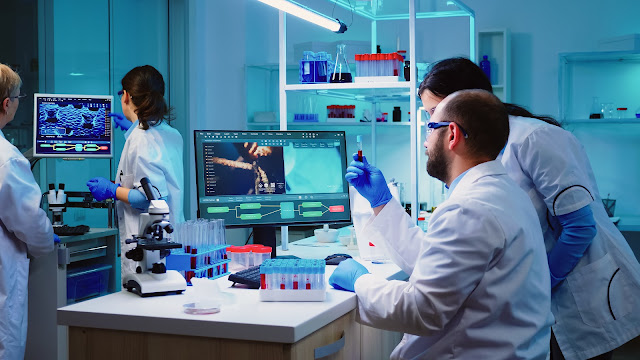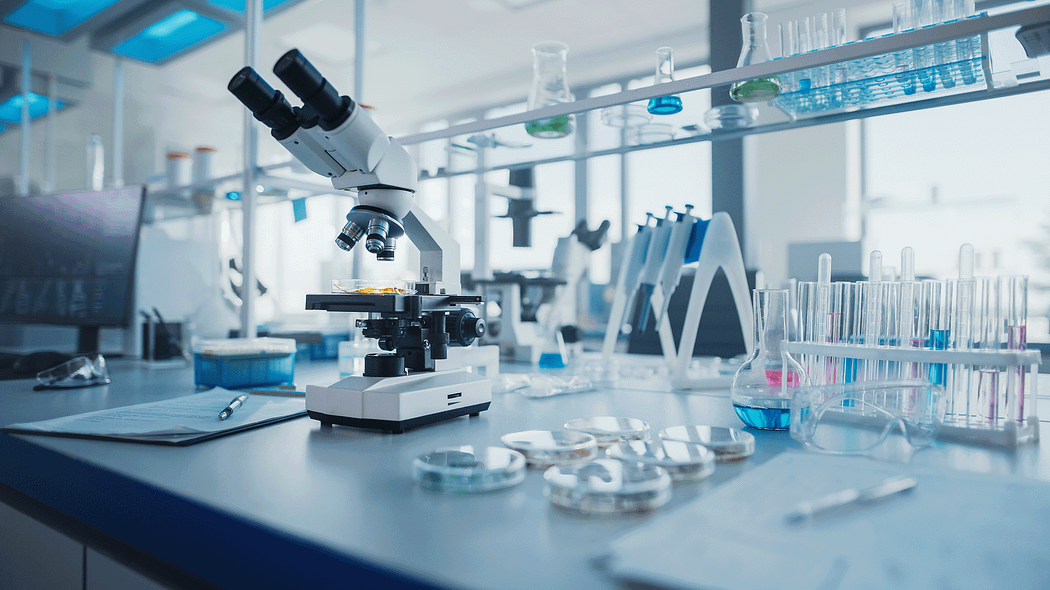Navigating the Dynamics of India’s Diagnostic Labs Market: A Comprehensive Overview
The landscape of diagnostic services in India is undergoing a transformative phase, driven by strategic government initiatives and the relentless efforts of key players in the healthcare sector. The Government of India, recognizing the challenges posed by high out-of-pocket expenditure on diagnostics, has introduced the Free Essential Diagnostics Initiative under the National Health Mission. This initiative aims not only to address the financial burden on patients but also to enhance the quality of healthcare services across the nation.
Government Initiative to Transform Diagnostics Landscape
 |
Lab diagnostics market |
The initiative focuses on SC/PHC/CHC/SDH/DH facilities in states, aiming to enhance low-cost, high-volume diagnostic tests. However, challenges persist, especially in tier 2 and tier 3 cities, where the lack of skilled professionals capable of conducting various diagnostic tests poses a hurdle. In smaller towns and cities, standalone centers often lack professionals adept at accurately interpreting and analysing diagnostic test results. Despite these challenges, major hospitals and centers are actively working to bolster the healthcare and diagnostics sector. The government’s initiatives play a pivotal role in supporting these endeavors, ensuring that quality services are accessible without imposing financial burdens on the average users of healthcare services.
Market Dynamics and Segmentation

The India diagnostic labs market is multifaceted, with segmentation based on provider type, test type, sector, end-user, region, states, and companies. Understanding these dynamics provides valuable insights into the market’s growth trajectory.
1. Provider Type
- Stand Alone Diagnostic Labs: In 2022, this segment claimed the largest market share, around 43.13%. Private laboratories, abundant across the country, contribute to accessible and affordable healthcare services. Notable diagnostic chains, such as Dr. Lal Path Labs, further strengthen this segment.
- Hospital Based Diagnostic Labs: These labs, embedded within hospitals, play a crucial role in comprehensive patient care. Their share in the market reflects the integrated approach to healthcare.
- Diagnostic Chains: As the diagnostic landscape evolves, diagnostic chains are gaining prominence. Their role in providing standardized services across locations contributes to the market’s overall growth.
2. Test Type
Pathology and Radiology: The market is divided into these two primary categories. The pathology segment is anticipated to dominate the market through 2028. Growing health consciousness among the population has led to an increase in routine health check-ups, where pathology tests play a pivotal role in disease detection and monitoring.
3. End User
Doctor Referrals, Routine, Wellness, Specialized, Corporate Clients: The Doctor Referrals segment is expected to lead the market. Individuals often undergo diagnostic tests based on their doctor’s recommendations. Routine and wellness segments are witnessing growth due to increasing health awareness, prompting more people to opt for regular health check-ups. Corporate clients, too, are on the rise, as companies prioritize employee health through regular health checks.
Diagnostic Labs Market Key Players
The India diagnostic labs market is marked by fragmentation, with standalone diagnostic labs holding the majority of stakes. However, diagnostic chains are steadily gaining ground and securing a significant share in the overall market. Key players include:
- Dr. Lal PathLabs Limited: Holding the highest market share, Dr. Lal PathLabs is a major player contributing to the growth of the diagnostic labs market.
- SRL Diagnostics Pvt Ltd.: Ranked second in terms of market share, SRL Diagnostics plays a vital role in shaping the competitive landscape.
- Metropolis Healthcare Ltd.- Thyrocare Technologies Limited, Vijaya Diagnostic Centre Pvt. Ltd.: These companies, among others, are actively participating in the market, employing strategies like mergers, acquisitions, collaborations, and additional services to stay competitive.
Diagnostics Lab Market Trends and Future Outlook
 |
Lab analysis and medical diagnostics market |
The India diagnostic labs market is dynamic, with key trends shaping its trajectory. The emphasis on accessibility, affordability, and standardized services is likely to drive innovations in the sector. As the government continues its initiatives to strengthen public health facilities, opportunities for growth and collaboration abound.
Technological Advancements Driving Innovation
The diagnostic labs sector is witnessing a surge in technological advancements that are revolutionizing diagnostic processes. Automation, artificial intelligence, and machine learning are increasingly being integrated into diagnostic workflows, streamlining processes and enhancing accuracy. This shift towards digitization not only expedites the diagnostic timeline but also allows for more precise and efficient analyses.
Rise of Point-of-Care Testing
Point-of-care testing (POCT) is gaining prominence as a convenient and rapid diagnostic solution. The demand for on-the-spot testing, especially in remote or resource-limited settings, is pushing diagnostic labs to adopt POCT technologies. This trend not only improves patient outcomes by facilitating quicker decision-making but also contributes to the decentralization of diagnostic services market.
Personalized and Precision Diagnostics
Advancements in genomics and molecular diagnostics are paving the way for personalized and precision diagnostics. Tailoring diagnostic approaches to an individual’s genetic makeup allows for more targeted and effective treatment strategies. This trend is anticipated to grow, providing a more nuanced understanding of diseases and facilitating personalized medicine.
Integration of Data Analytics
The abundance of healthcare data generated by diagnostic labs is prompting the integration of data analytics tools. Analyzing large datasets can unveil valuable insights into disease trends, treatment responses, and population health. Diagnostic labs are increasingly recognizing the importance of harnessing data to improve diagnostics and contribute to broader healthcare initiatives.
Increasing Focus on Preventive Diagnostics
A shift towards preventive healthcare is driving an increased focus on diagnostic screenings aimed at early disease detection. Diagnostic labs are playing a pivotal role in preventive diagnostics by offering a range of screening tests that enable the identification of health risks before symptoms manifest. This proactive approach aligns with global efforts to reduce the burden of chronic diseases.
In conclusion
The India diagnostic labs market is at the crossroads of transformation. Government interventions, coupled with the initiatives of key market players, are steering the sector towards a future characterized by enhanced accessibility, affordability, and quality in diagnostic services. The collaborative efforts of diagnostic labs, healthcare providers, and the government are pivotal in ensuring that healthcare services in India evolve to meet the changing needs of the population.
Comments
Post a Comment